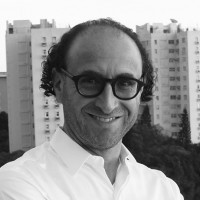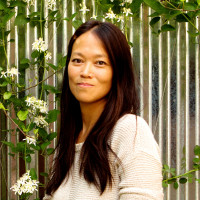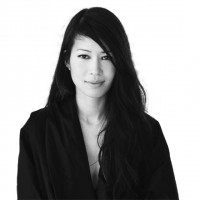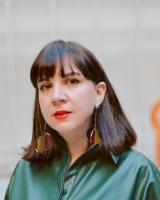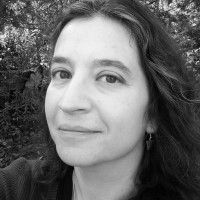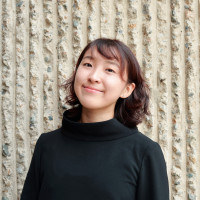The Master of Architecture curriculum is designed for students with baccalaureate degrees in any field to acquire a first professional degree, but also supports advanced standing for students with baccalaureate degrees in architecture.
The ‘core’ of the program constitutes studios in design, design research workshops, media and representation seminars, seminars in theory and history, as well as lectures in structures and technology. There are four ‘core’ studios, culminating in the Integrative Studio, designed to synthesize knowledge garnered across the curriculum in a highly detailed building design.
The final year of the program consists of an advanced Visiting Critic (VC) Studio and the final Directed Research Studio. In the fall, students’ ballot for a VC studio, taught by distinguished visiting faculty from across the globe who are in residence for 1-2 semesters at Syracuse. Students also have an opportunity to work with our distinguished Boghosian Fellow, which attracts the best emerging professors to Syracuse, for 1-2 semesters in their studio and/or seminar. The final semester, students’ ballot for the Directed Research Project, led by 6-8 faculty each year with projects based on their particular expertise. This final semester embraces innovation and collaboration and is an intense and energized experience with high-levels of production that culminates in rich design investigations that examine and explore the fringes of architectural discourse.
For a current summary of our elective offerings, click here.
Our MArch is a STEM Designated Degree by the US Student and Exchange Visitor Program.
Curricular areas
design Studio
The design studio is central to the Master of Architecture curriculum and fosters creativity, critical thinking, collaboration, and exploration through making; encouraging students to push the boundaries of architectural design with an innovative approach and a visionary mindset for experimentation and risk-taking.
studio culture
The studio is not just a physical space; it’s a dynamic community of diverse talents from various backgrounds and cultures. Our studio culture values research and continuous learning. Engaging with design theory, history, and contemporary discourse broadens our students’ knowledge base, allowing them to approach projects with a well-rounded and informed perspective. We encourage our students to embrace curiosity, explore unconventional approaches, and challenge the status quo.
The Discursive Studio
The design studios operate as “discursive studios,” meaning we aim to create an alternative approach where the focus extends beyond physical outcomes and encompasses critical thinking, research, and the exploration of ideas. In a discursive design studio, the emphasis is placed on creating a space for dialogue, debate, and intellectual exchange. A discursive design studio encourages students to question and challenge established norms in order to delve into the theoretical underpinnings of design. Through critical analysis and reflection, students develop a deeper awareness of their roles as designers and the responsibilities that come with it.
Design Collaboration
In the studio setting, collaboration is highly valued, fostering an environment where students, faculty, and professionals come together to exchange ideas, offer constructive feedback, and push the boundaries of design thinking. Collaborative projects and group critiques encourage students to challenge one another’s assumptions, perspectives, and design approaches, fostering a rich and diverse intellectual community. Regular design critiques and collaborative workshops fuel intellectual discourse, enabling students to learn from each other, challenge conventions, and refine their design approaches.
ARCHITECTURAL DESIGN RESEARCH WORKSHOPS
The Master of Architecture Research Workshop Credits are an opportunity for students to gain exposure to guest professionals and critics who are invited to conduct a virtual and/or in-person workshop in Syracuse. The courses provide a view into compelling design research methodologies from emerging design processes and practices that typically lie outside traditional architectural production. This is a fantastic opportunity to see how design research bridges practice and create productive partnerships that expand one’s knowledge of the field of architecture. The workshops are either taken as one or two credits.
HISTORY AND THEORY
Equal parts analysis, speculation, research, and critique, these lectures and seminars develop students’ intellectual knowledge and skills. Through discussion and presentation, students begin to engage the discourses — texts, buildings, projects, and media — that are fundamental to an understanding of architecture’s rich disciplinary traditions. As a counterpart to the ongoing discourse in the design studio, these seminars provide opportunities for extended treatment of esoteric, timely, ethical, and traditional topics, with the aim to identify and initiate the preoccupations, debates, and research interests that students will continue to pursue throughout their studies.
MEDIA
This two-course sequence introduces students to architectural representational techniques through the lens of architectural media — both materially and representationally. The courses focus on how to communicate ideas through 2D and 3D digital representations as well as material artifacts. For the beginning design student, these courses introduce conventional and experimental techniques of communication that cross digital and analog processes, leading to an understanding of the use of these techniques as critical techniques for framing and constituting architecture itself. From these introductions, the courses move into advanced software and methods of design communication, including hybrid physical/digital modeling, rendering, digital fabrication, and animation.
BUILDING TECHNOLOGIES AND STRUCTURES
Construction practices are constantly evolving, and new design techniques continue to evolve to keep pace. Through this sequence of courses, both required and elective, students are rigorously introduced to the fundamentals of building construction, codes, and maintenance. At the same time, students are exposed to new design tools and techniques that are becoming standard tools for practice: methods and applications for construction, optimizing complex structural designs, daylighting and energy analysis tools, and other building information modeling simulation techniques.
Visiting Critic Studios
A hallmark of Syracuse Architecture’s professional curricula, these studios are taught by distinguished visiting practitioners and professors expose students to a wide variety of subjects and approaches that represent the vanguard of contemporary practice.
DIRECTED RESEARCH
The capstone experience in the M.Arch degree embraces the complex multi-disciplinary nature of architectural projects in the 21st century by providing a framework for students to explore individual research + design interests around a series of topics supported by faculty expertise. Students will work on shared topics and are given the opportunity to advance their work in the kinds of multi-disciplinary contexts and conversations that drive innovative practice today.
Each course will involve students in a collaborative design project and/or research endeavor led by faculty members. This capstone course will require student initiative, critical thinking, a willingness to take risks, and an advanced digital and material skill set. Course format and size varies depending on the type of research undertaken. The aim of the Directed Research courses is to culminate, with maximum quality, intensity, flexibility and diversity, the aspirations of the M.Arch curricula (including design, design research, technical knowledge, critical/creative thinking, and political and cultural awareness) in ways that prepare students for careers in the evolving and increasingly specialized, collaborative, and multi-faceted field of architecture.
Through the Directed Research experience, we prepare students to seek, initiate, and lead these conversations upon graduation.
Student Performance Criteria
Every accredited architecture degree program must demonstrate that each graduate possesses the knowledge and skills defined by the criteria established by the National Architectural Accrediting Board (NAAB). These criteria help accredited degree programs prepare students for the profession while encouraging education practices suited to the individual degree program. Learn more about these criteria here.

